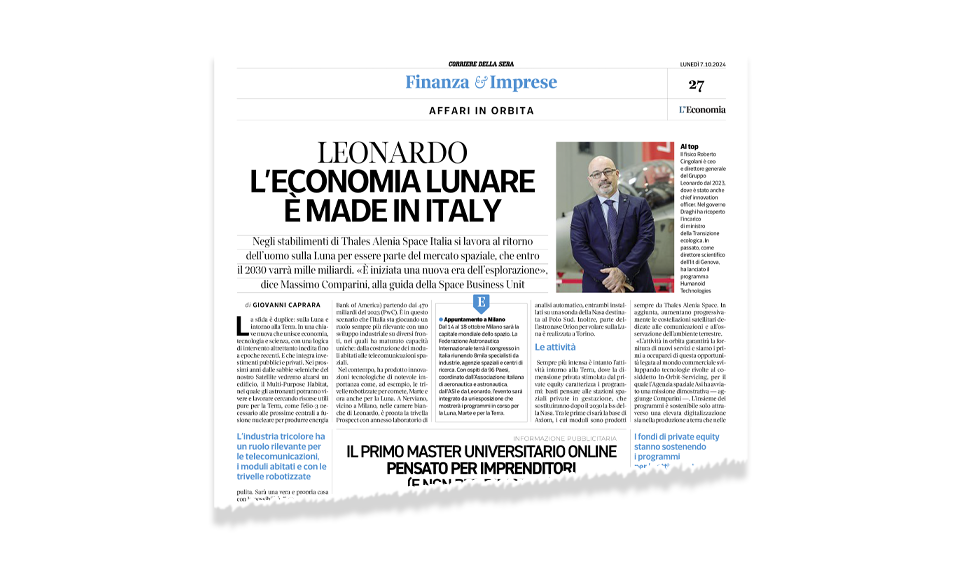The challenge is twofold: on the Moon and around the Earth. This is the prospect of the space market, which by 2030 will be worth a trillion euros. In the coming years, we will see inhabited modules on the lunar soil, where astronauts and scientists will work to develop new technologies and search for resources, useful not only to continue Space exploration, but also to improve life on our Planet. At the same time, activity around the Earth is increasingly intense, where private Space stations will replace NASA's ISS and satellite constellations dedicated to communications and observation of the Earth's environment will increase, developing technologies linked to In-orbit servicing.
The Italian industry has a significant role in some key sectors of the Space Economy, both in services, such as telecommunications and commercial applications, and in the exploration of the cosmos, with the production of inhabited modules and robotic equipment. As Massimo Comparini, Managing Director of Leonardo’s Space Business Unit and Chairman of Thales Alenia Space’s Supervisory Board points out, “We are on the threshold of a new era of Space exploration, supported by the institutional and private world. The effort underway represents an extraordinary opportunity with sustainable innovation for our Planet and, in perspective, also a true lunar economy, when thinking of Mars.”
Closely linked to the rapid evolution of the Space dimension is the need for huge data processing capabilities, to handle the enormous amount of information collected, to be able to use it both in the production of more advanced technologies and for commercial purposes.
“This poses an epochal challenge – notes Simone Ungaro, Chief Strategy & Innovation Officer of Leonardo – Space becomes a true laboratory for innovation, where supercomputing, cybersecurity, quantum and cloud computing are integrated. This will allow us to optimise resources, improve business results and guarantee the safety and sustainability of orbital systems and the terrestrial environment.”


